






















Welcome to Issue 14 of the UK Mediation Journal. We’d like to take this opportunity to thank our contributors, sponsors and subscribers for their continued support and dedication to advocating ADR and mediation. Our commitment to provide those in the workplace with the skills and contacts to mediate and offer effective training is unwavering.
We’d also like to take the opportunity to welcome you to UK Mediation Conference 2024Managing Conflict in the Workplace. The event is presented by Iconic Media Solutions, Acas and event partner The TCM Group with the aim of bringing together HR professionals, leaders and experts in ADR to better understand managing workplace conflict.
Sessions delivered by Acas, The TCM Group, Nicky Perfect, Consensio, Mia Forbes Pirie, Sheridan Worldwide, CommPassion, IPOS Mediation and Tutu Foundation UK.
We hope you enjoy the day and find the content both insightful and practical. We look forward to seeing you at future conferences!

Craig Kelly, Publisher

Read all issues and subscribe:

Published by Iconic Media Solutions Ltd, 60B Westcote Road, London SW16 6BN
t: +44 (0)20 3693 1944
e: info@iconicmediasolutions.co.uk
w: www.iconicmediasolutions.co.uk
5. Getting engaged at work
9. Small Businesses, Big Challenges: Trailblazing a Resolution Revolution for SMEs
12. Addressing the skills gap beyond mediation: Shifting the power to employees
15. Bridging Minds: Navigating Neurodiversity in Conflict Resolution
19. Directory of Mediation & Training Providers
27. UK Mediation Conference Show Guide
Follow us:
@UKMediationJ
@UKMediationJournal
www.ukmj.co.uk
Whilst every care has been taken in compiling this publication, and the statements contained herein are believed to be correct, the publishers do not accept any liability or responsibility for inaccuracies or omissions. Reproduction of any part of this publication is strictly forbidden. We do not endorse, nor is Iconic Media Solutions Ltd affiliated with any company or organisation listed within. It is advised before appointing a mediator or trainer that you carry out your own quality and competence checks.
Everyone can resolve conflicts when they are empowered to create their own solutions. Sheridan Worldwide works globally to help people and organisations communicate effectively and strengthen working relationships by:
Everyone can resolve conflicts when they are empowered to create their own solutions. Sheridan Worldwide works globally to help people and organisations communicate effectively and strengthen working relationships by:
Focusing on team dynamics through honest and candid conversation coaching
Focusing on team dynamics through honest and candid conversation coaching
Providing strategic consulting to support a shift to a resolution culture The provision of expert workplace and employment mediators Conflict resolution and mediation skills for managers and leaders
Providing strategic consulting to support a shift to a resolution culture
“Sheridan Worldwide had a hugely positive impact on our organisation and on the parties who engaged in mediation following a relationship breakdown.”
The provision of expert workplace and employment mediators Conflict resolution and mediation skills for managers and leaders
Hannah Coulson, Chief Human Resources Officer, Callastone

“Sheridan Worldwide had a hugely positive impact on our organisation and on the parties who engaged in mediation following a relationship breakdown.”
Hannah Coulson, Chief Human Resources Officer, Callastone




By Sheridan Worldwide
The question of how to engage employees in mediation as a route to resolution of their grievances is one for both HR and the mediator alike. Sometimes engagement will be full and immediate but at least as often, participation will initially be secured through managerial or organisational pressure to mediate, and the actual participation may be reluctant, half-hearted or outright sceptical.
The same is true for organisations. When first faced with the suggestion of mediation, and despite its many attractions relative to a formal process (speed, cost, flexibility, focus on preservation of relationships, etc), they may stall – “it’s not in our procedures”, “the unions won’t like it”, “Acas says we can’t do it”, “we’ve never done it before”, “examples must be made”, and so on. It is of course completely right that not every dispute at work can or should be mediated. It is


also true that few grievance procedures currently provide expressly for it. But it is not true that the Acas Code of Practice prevents employers suggesting mediation as a first response to a complaint rather than as an outcome from it, and it is not usually true that modern union representatives will object to it, since they know as well as you do that in reality, their members’ best interests lie in protecting and rebuilding workplace relationships, not in tub-thumping rhetoric almost guaranteed to destroy them.
But commerciality, pragmatism, cost and so on tend to speak more loudly to businesses than to individuals since for them a grievance or allegation is often personal, something affecting how they may be seen by others and indeed by themselves. Formal grievances and disputes almost always polarise the parties – “I am entirely right and
he is entirely wrong” – where in reality that is very rarely the case. If you believe that your conduct or performance has been beyond reproach, why would you not wait for the formal process to vindicate you and grind your opponent’s face in it?
Alternatively, in the heightened emotional state which often accompanies workplace complaints, why would you believe HR’s assurances that the other side to the mediation will respect your confidentiality? Why would you be willing to open up to the mediator about what really matters to you in the dispute if you think it will be used against you afterwards?
Maybe you are bringing your complaint as an issue of principle, to ensure that its subject is punished, ideally publicly, for what you say they have done? Where is the attraction then of a discreet process covered by a blanket confidentiality obligation?
It may just be that you are scared. Scared of having to talk to the other person, of being less calm or coherent than they are and so less persuasive to the mediator, of retaliation afterwards, or that they will blind you with clever legal arguments and tie you up in knots in the questions they may pose.
There are lots of such reasons available for a worker’s not engaging properly (or at all) when mediation is suggested for a workplace dispute. But most of them are very weak and it is the role of HR and the mediator to present the process in a way which shows that to be the case. Here are some possible responses to those concerns:
“I am right and he is wrong”
• Emphasise the benefits and the unique aspects of mediation to appeal to their sense of fairness and resolution.
• Unique opportunity to express perspectives in a controlled environment to allow parties to feel heard. Mediators work hard to surface the real reasons behind the conflict and find areas of common ground
• Focuses on finding a mutually agreeable solution based on interests and needs and more likely to secure some form of acknowledgement than in a formal process.
• Passes back control, responsibility and decision-making to the parties to agree a way forward.
• Raise the possibility that the formal process finds that there is some culpability on the part of the complainant also and therefore that the vindication they seek is not on the table after all. What will they do then?
• Reference the mediation agreement and that confidentiality is a cornerstone of the process. Where a breach of confidentiality occurs, it can be treated by the employer as misconduct.
• Protected by law, meaning that what is said is without prejudice and cannot be used in court.
• The process differs from a formal grievance where a larger number of people may be involved and aware, and where the confidentiality obligations are weaker.
• Provides a safe space where parties can speak openly and express their concerns, without fear of judgment, in the
presence of a trained mediator who is also committed to these principles.
of principle: I want the other ‘punished’
• Understanding their underlying motivations: show them how mediation can lead to outcomes that address their core concerns or unmet needs, not just surface-level issues. Isn’t the important thing that the issue is addressed or the relevant conduct stops going forwards, rather than exactly how that is achieved?
• Focus on solutions, not punishment: emphasise that mediation is about finding solutions rather than assigning blame or punishment and explore benefits of that shift in mindset. How will the complainant feel if the formal process does not lead to the sanction that they hope?
• Confirm that the mediation route does not mean that anyone “gets away with” anything – if it is felt by the employer that disciplinary action is necessary to make the necessary changes, it can still be taken. But that is a decision for the employer to make, not the employee raising the complaint.
• Mediation fosters an environment to re-build trust and cooperation which can be more productive than a punitive approach and lead to longer term benefits. How will they work with the other person in future if it becomes clear that the complainant placed sanction above pragmatic resolution?
• The parties take control of the resolution process to find mutually agreeable solutions which is more empowering than relying on external authorities to impose punishment.
• Use active listening to surface concerns and anxieties. The flexibility of the process then allows mediation to be tailored, e.g., spread over several days, private sessions with the mediator, use of breaks, timing of joint sessions and of opening statements, and other strategies to reduce the pressure of the process.
• Reassurance that the mediator is always present in joint sessions so they are ‘not alone’ and encouraging the use of less provocative ‘I’ statements to express their feelings and needs.
• Understanding that the parties may exit the process at any time, though the mediator should also contract up front to say “that is when I’ll likely be asking you to stay”, as it can typically be a point of breakthrough.
• Check if the right parties are in the room, maybe look to engage the line manager in the process too.
• Consider allowing or even encouraging the party to be accompanied by a friend or colleague, not necessarily to take any active role, but at least to provide a level of moral support “in their room”.
• HR can accept that mediation won’t be easy but emphasise at the same time that it will certainly be less stressful for the complainant than a formal contested grievance process.
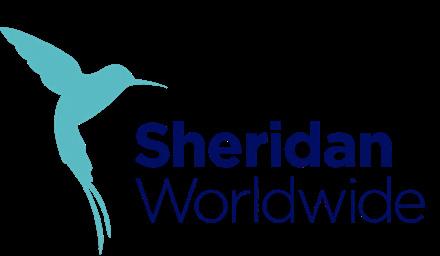
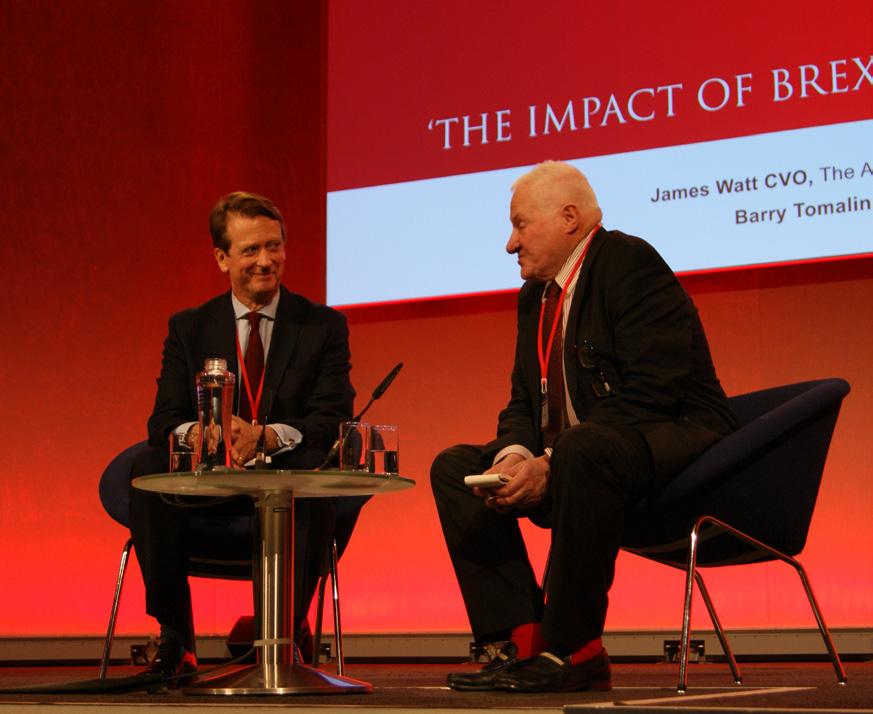
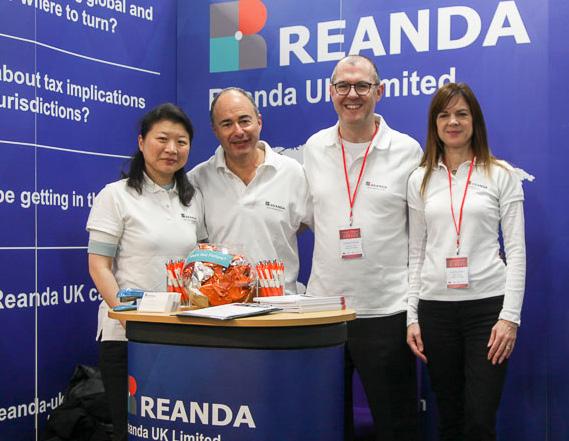

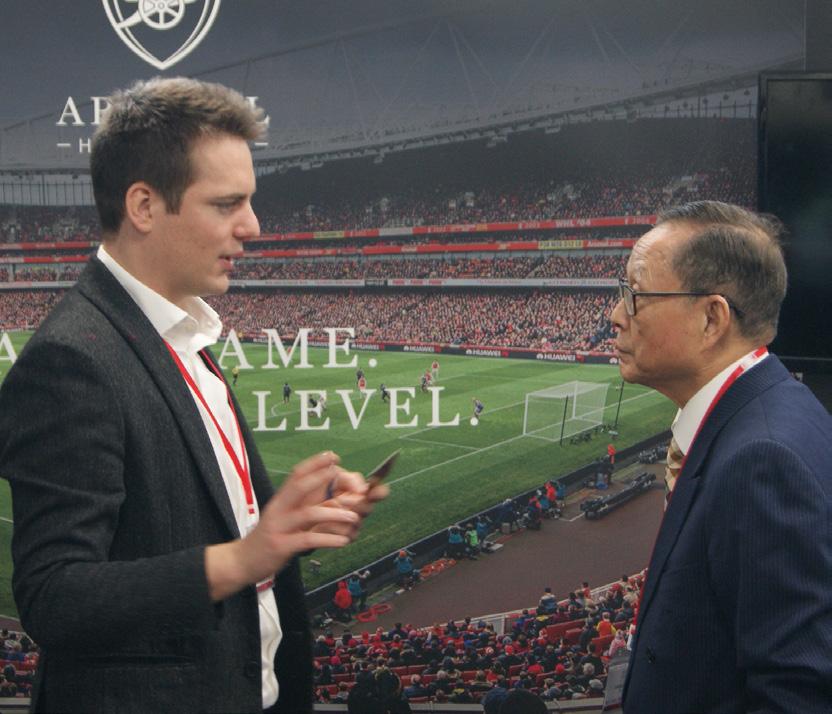
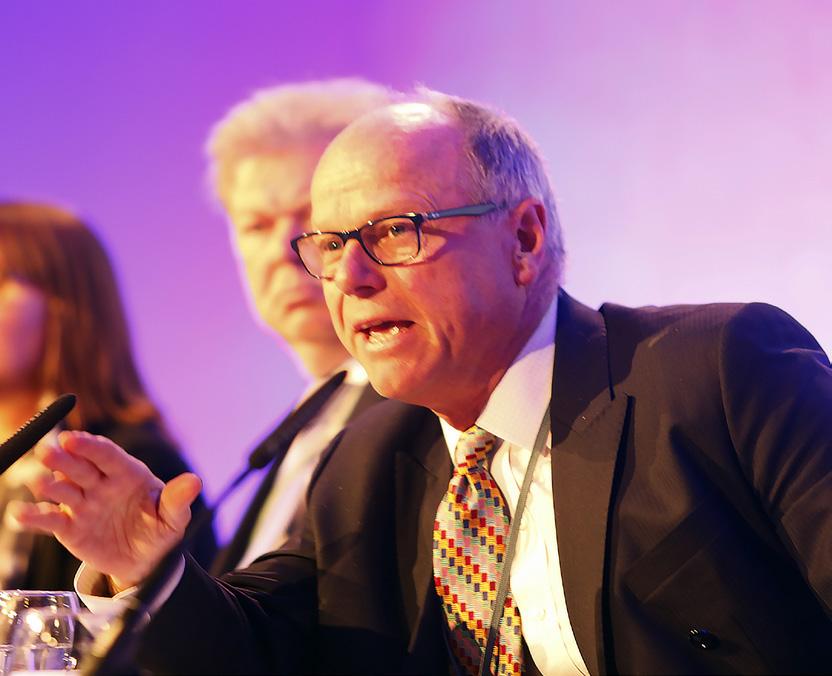


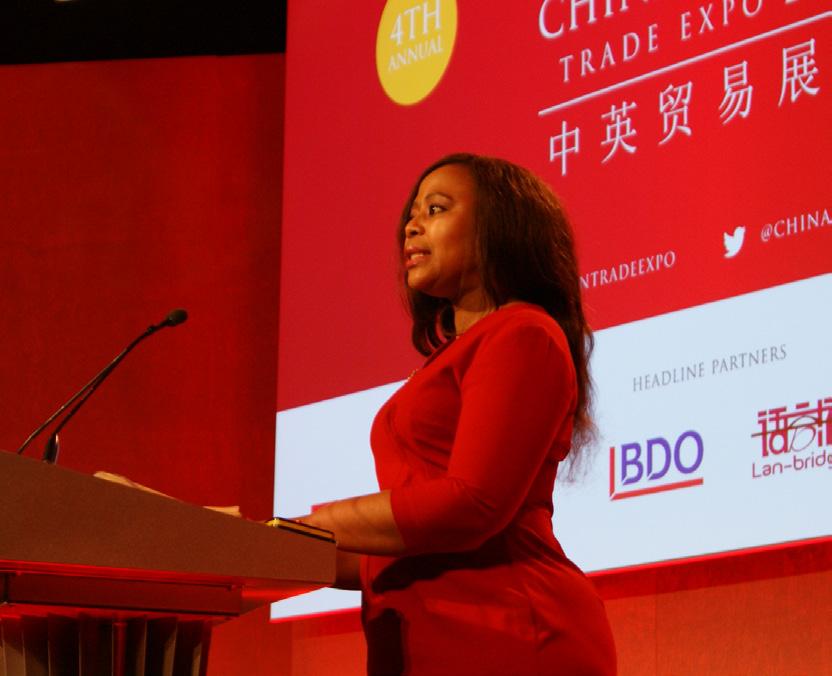
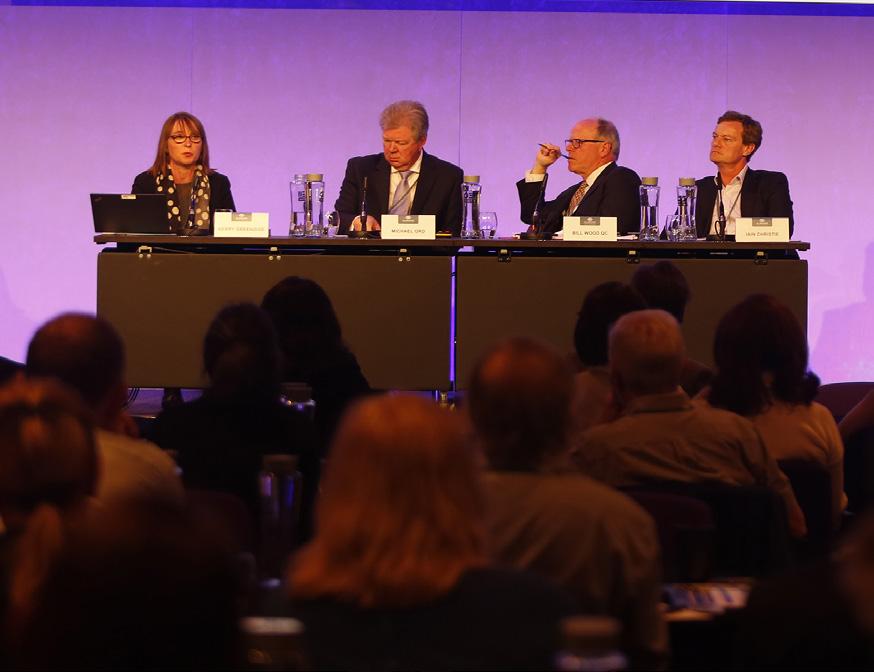

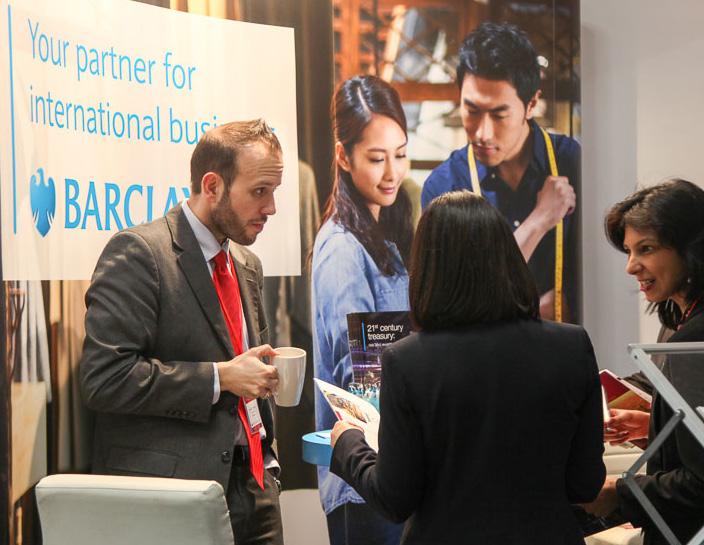

Our live events portfolio of conferences and exhibitions brings together leading Government officials, trade organisations, business leaders, industry experts, thought leaders and trade associations. Amassing the most relevant and high profile delegates, our events offer highly targeted environments to network and conduct business. Whether you would like to find out more information about scheduled events or would like to discuss event partnerships please get in touch.


Conflict and disputes are an inevitable feature of the odern workplace. Are you seeking a simpler and more ective approach to turn them into positive outcomes?
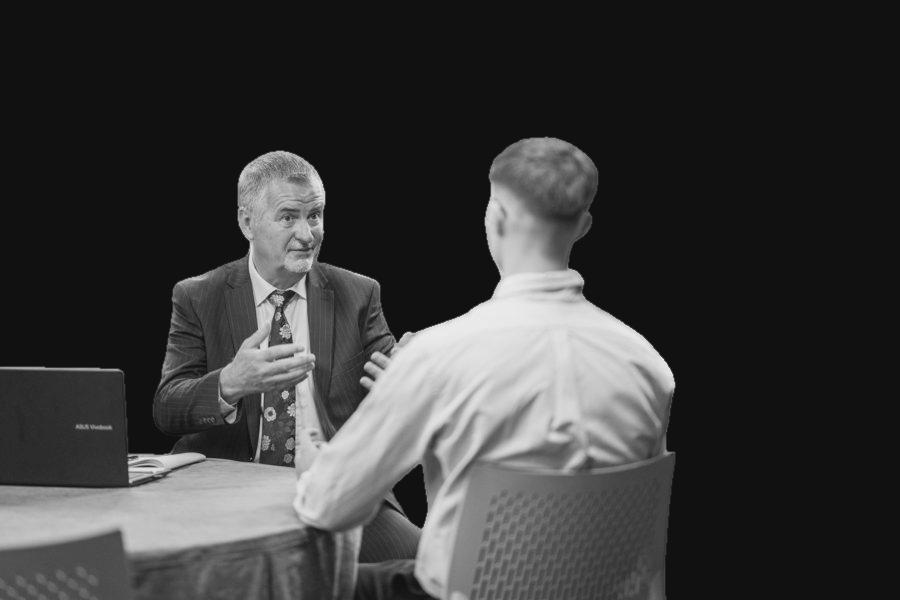

This worked best for us because the service offers both a quick turnaround for cases and extensive aftercare. Their outsourced mediation scheme nipped stuff in the bud early.

Conflict and disputes are an inevitable feature of the modern workplace. Are you seeking a simpler, more effective approach to turn them into positive outcomes?
Resolution (UKR) is the UK’s national ‘all in one’ HR nsultancy and resolution centre for the discerning small d medium-sized business.
UK Resolution is the UK’s national resolution centre.
r resolution services are uniquely tailored to support SMEs, mily-run businesses, charities, social enterprises and small blic bodies such as GPs schools and parish councils
Our resolution services are uniquely tailored to support SMEs, family-run businesses, charities, social enterprises and small public bodies such as GPs schools and parish councils
working with UKR, customers have access to a panel of rld-leading HR professionals, mediators, investigators, aches and lawyers. So, no matter the challenge, you’ll have expert support on-hand to resolve issues as they come.
By working with UKR, customers have access to a panel of world-leading HR professionals, mediators, investigators, coaches and lawyers. So, no matter the challenge, you’ll have expert support on-hand to resolve issues as they come.
Guaranteed mediation services using our innovative ‘ no win-win, no fee’ approach. Innovative HR policies and management processes that reduce the risk of damaging grievances and costly tribunals. and extensive aftercare Their outsourced mediation scheme nipped stuff in the bud early.
Flexible and cost-effective HR and employment law support when you need it most 24-hour resolution helpline dedicated to keeping you and your business out of court.
Flexible and cost-effective HR and employment law support when you need it most 24-hour resolution helpline dedicated to keeping you and your business out of court
Multi award-winning dispute resolution system - The Resolution Index™. This is being used by Next, TSB Bank, Aviva, Burberry, HSBC and the BBC.
Multi award-winning dispute resolution system - The Resolution Index™ This is being used by Next, TSB Bank, Aviva, Burberry, HSBC and the BBC.
Prompt resolution of a wide range of business, commercial and workplace disputes.
Prompt resolution of a wide range of business, commercial and workplace disputes.
Guaranteed mediation services using our innovative ‘ no win-win, no fee’ approach.
Innovative HR policies and management processes that reduce the risk of damaging grievances and costly tribunals

By David Liddle, CEO and Founder, The TCM Group
It’s no secret that conflict can be a business killer. According to Acas, workplace conflict costs UK employers an eye-watering £28.5 billion a year, equating to £1,000 per employee. That’s money most companies, especially small and medium-sized businesses (SMEs), simply can’t afford to lose. But it’s not just about the financial hit.
Think about the toll on employee morale, engagement, and mental wellbeing. The CPP found that 29% of employees have been dealing with continual conflict that can escalate into personal attacks, and a significant 85% have experienced some form of conflict at work in their careers. A CIPD report further reveals that 42% of those who experienced workplace conflict in the previous 12 months said they ‘always’ or ‘frequently’ felt exhausted, and 37% said they always or often felt under pressure.
What if we could change that narrative? What if we could nurture the ability to turn conflict into an opportunity
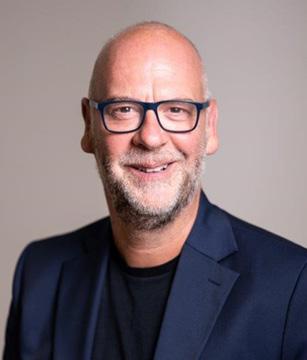
for collaboration and growth, particularly in a business’ infancy? That’s exactly what we’re striving for with UK Resolution (UKR)
Through our flagship brand, The TCM Group, we’ve always b een passionate about transforming how organisations manage conflict. It’s evidenced in the 93% successful outcome rate we’ve achieved between parties through mediation and facilitation. Recently, it’s been encouraging to see an increasing number of clients move through our developing ecosystem; for instance, those who understand the benefits of tying in mediation with conflict coaching.
But with the launch of UKR, our new HR consultancy and national resolution centre designed specifically for smaller businesses, we’re more excited than ever. Why ? Because we know the incredible difference this offering is going to make for companies that might not have the resources or
time to effectively handle workplace disputes on their own.
We’ve created something truly special, a powerful solution that gives SMEs, family businesses and small public bodies such as schools, parish councils and GPs alike the tools and strategies to navigate conflict in ways that foster growth, respect, and resilience.
We know how overwhelming conflict can be, especially for smaller businesses and third sector organisations that don’t have a big HR department or a dedicated conflict resolution team. So, we’ve created a system that isn’t just about quick fixes and putting out fires; it’s about transforming the way businesses manage conflict from the inside out. And we’ve designed it with the unique challenges of a smaller organisation in mind.
One of the key components of our approach is The Resolution Index™ — a tool we’re particularly excited about. It’s like having your very own conflict expert in your pocket, ready to triage each case and recommend the most effective resolution strategy. Whether the issue is a minor misunderstanding or a major conflict, The Resolution Index™ evaluates it based on metrics like duration, severity, past resolution attempts, and potential risks. This ensures that nothing slips through the cracks and that each case gets the attention it deserves.
After all, it’s easy and common for any size organisation to lose track of things. But our intuitive casework hub dashboard further helps solve this by keeping everything organised, providing real-time updates on the progress of each case for data-driven decision-making. This transparency and ease of use is something we’re incredibly proud of. It makes handling conflicts feel a lot less mind-boggling f or
businesses, especially those that don’t have time to chase down the details themselves.
UKR offers a truly personalised approach that SMEs have never really had access to before. We don’t believe in a onesize-fits-all for the customer. Instead, after the triage process using The Resolution Index™, we recommend the best course of action from our suite of resolution services — whether that’s mediation, conflict coaching, team facilitation, or formal investigations. What’s more, customers uniquely have access to a panel of world-leading HR professionals, mediators, investigators, coaches and lawyers that would be typically reserved for larger organisations.
It’s about getting the right people involved at the right time to nip conflict in the bud before it does any real damage. And doing so with utmost fairness, objectivity and compassion at the same time.
“ It worked best for us because the service offers both a quick turnaround for cases and extensive aftercare. Their outsourced mediation scheme nipped stuff in the bud early. ”
Janine Hodge, ER Specialist at The Met Office
Moreover, where conflict and disputes are traditionally rooted in shame and avoidance, this personalisation and flexibility is key for the parties’ willingness and engagement during the route to resolution process. We’re there as a trusted partner should they need further guidance and aftercare following any actions.


“Their approach at developing fair, just, sustainable and high performing organisations and the time they take to truly understand our needs has meant their interventions have been incredibly well received.
”
Rachel Cooper, L&D Manager at Amnesty International
On top of the challenges conflict creates, navigating the ever-changing landscape of employment law adds another layer of complexity for small businesses. As Labour’s new Employment Rights Bill comes into effect on 26 October 2024, with 28 individual employment reforms including updates on flexible working rights, redundancy processes, and harassment prevention, small businesses are under more pressure than ever to ensure compliance. This is where things can get really tricky, especially for organisations without an in-house legal or HR department.
For start-ups and other small businesses, the stakes are high. Mishandling disputes can lead to costly tribunals, damaged reputations, and strained relationships with employees. That’s why it’s crucial to have a resolution framework that doesn’t just deal with conflict effectively but helps you negotiate legal challenges in line with the latest requirements as well.
We’re biased, but we can’t help but feel thrilled about the potential impact UK Resolution is going to have. Imagine a workplace where conflict doesn’t simmer under the surface,
where it’s addressed swiftly and fairly, and where employees feel heard and valued. A workplace where conflict isn’t destructive, but rather a catalyst for a culture of trust, innovation and deeper connections between team members.
For SMEs, this really can be revolutionary. Embedding a culture of proactive conflict management before a business potentially scales up is a critical ingredient for ensuring longterm success. By fostering empathy and mutual respect, we’re helping businesses not only resolve conflicts but adopt a forward-thinking approach that prevents them from happening in the first place. And we can guarantee that as a result, the output and the talent that subsequently walks through the door will get increasingly more astounding.
If you’re ready to shift how your business manages conflict, we’d love to partner with you on that journey. Let’s talk about how UK Resolution can help you build a more resilient, harmonious workplace — where conflict isn’t feared, but embraced as a positive opportunity.
Find out more at ukresolution.com, or get in touch with us at info@thetcmgroup.com and let’s start building a workplace that thrives through resolution.




By Alexandra Efthymiades and Anna Shields, Directors and Co-founders of Consensio
Arecent report from the Chartered Institute of Personnel and Development (CIPD)* highlighted two important findings: a significant gap in conflict resolution skills, and a marked divide between employers and employees.
Based on data from more than 2,000 employers and 5,000 employees in the UK, the report confirmed that conflict is a common occurrence in the workplace, with 25% of employees reporting that they have experienced conflict or abuse in the last 12 months. These statistics are not unexpected, as they back up a CIPD study from 2019, and align with our experience as workplace mediators and conflict management professionals.
What is surprising, however, is the significant disconnect between staff and leaders. While 75% of employers reported that employees feel confident to raise issues, this confidence is not reflected in employee data. Among those who experience conflict, only 17% felt confident to have an informal conversation with the person involved, and only 29% discussed their conflict with a manager or HR. Nearly half (47%) of surveyed employees said they took no action and ‘just let it go.’
When workplace conflict is left unaddressed, it impacts individuals, teams, and the wider organisation. It can affect the health and well-being of individuals, reduce engagement, and decrease productivity. It sometimes leads to formal processes or legal cases, which are time-consuming and costly, and which usually further damage already broken relationships.
One fundamental challenge for many organisations is that decision-making in relation to conflict – including the skills to manage and resolve disputes informally – is often limited to a
few people. These people are usually HR specialists, and in some cases, in-house mediators, facilitators or conflict coaches. In this model, the ‘power’ of conflict management and resolution is held by the few rather than the many. If organisations want to shift their conflict culture, they need to look at different and broader ways to upskill their workforce.
There are some useful ways to redress this imbalance in conflict skills within your organisation:
One of the CIPD report’s main findings is the crucial role that line managers play. Although employers are confident in line management capability, nearly half agreed that managers can be a cause of conflict in their teams. This is why managers need to be upskilled to learn to confidently address workplace conflict issues effectively and informally.
When managers are trained in conflict management skills, they are more able to nip conflict in the bud, develop better people management skills, and support stronger team relationships. When managers are aware of their conflict style and communication preferences, they can better understand how their own and others’ behaviours are contributing to a potential relationship breakdown
The next step in closing the skills gap is for leaders to prioritise conflict skills in organisational development. It is helpful for leaders
to understand the conflict landscape in their organisation by analysing employee feedback and ensuring that processes are in place to aid informal resolution, such as facilitation, internal mediation, and conflict coaching. The conflict culture is set by leaders who role-model constructive conflict behaviours, and informally act on issues as soon as they arise.
This approach has many advantages, including reducing the costs of unresolved conflict and formal processes. Dealing with issues early decreases management and HR time, which allows resources to be deployed elsewhere.
In an enlightened workplace, everyone is empowered to deal with conflict issues. If organisational processes solely rely on a small number of HR and conflict specialists to deal with challenging workplace relationships, then the workforce as a whole is not able to learn how to manage their own conflicts. This partly explains the rise in formal processes that many organisations are experiencing; people expect someone else to sort things out for them because they don’t feel skilled, confident or empowered to do this on their own.
The opportunity lies in training individuals across the whole organisation to try to manage conflict on their own, or with the support of a manager. It may be unrealistic to expect everyone to address issues directly themselves. However, when support is provided to everyone in an organisationsuch as online conflict resources, open-access and live
training, or having the support to speak with someone about a conflict - it enables people to act on their own. This allows people to take action and feel a sense of control and personal agency.
Leaders often see the sharp end of conflict – the tribunal or legal case, the number of formal complaints, the percentage of churn – and that is just the tip of the iceberg. For most organisations, the steps to close the skills gap are within reach. Organisations that disseminate conflict skills will reduce the negative impact of unresolved conflict and benefit from the opportunities that constructive conflict brings, such as stronger relationships, innovation, and increased wellbeing and productivity, which helps to build future-fit employees.
References * How employers are tackling bullying and harassment at work. (CIPD, 2024).

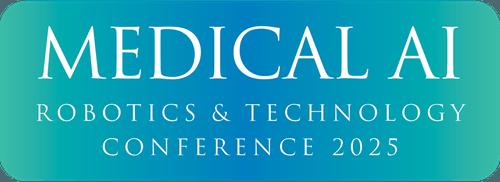



W h a t e v e r t h e v a l u e o r c o m p l e x i t y o f y o u r
d i s p u t e , o u r h i gh l y e x p e r i e n c e d
m e d i a t o r s c a n h e l p
I P O S p r o v i d i n g e x p e r t a n d a w a r d - w i n n i n g d i s p u t e
r e s o l u t i o n f o r o v e r 2 5 y e a r s .
T a l k t o u s t o d a y t o r e s o l v e y o u r d i s p u t e !
C a l l 0 3 3 3 0 1 4 4 5 75 o r v i s i t w w w . m e d i a t e . c o . u k
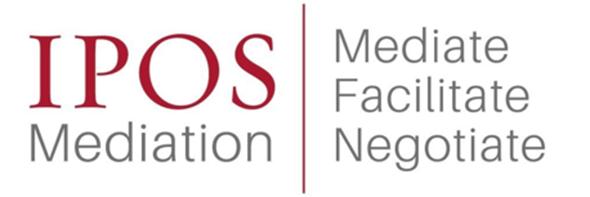
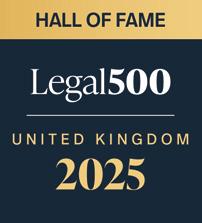









By Marie Coombes, CEO, We Restore Calm
nterpersonal conflict is inherently complex, and when neurodiversity is a factor, conflicts can become even more nuanced. Neurodivergent individuals bring unique strengths to interactions but may experience and process conflict differently from their neurotypical counterparts, facing challenges rooted in cognitive, emotional, and sensory processing differences. For mediators, understanding these variations in communication styles, sensory sensitivities, and emotional regulation is crucial for navigating conflicts with greater empathy and effectiveness. As a mediator recently diagnosed

with ADHD and Dyspraxia , alongside my longstanding Irlen Syndrome , I’ve gained insight into these dynamics through personal experience. Reflecting on my journey, I recognise how sensory overload, task initiation difficulties, and emotional dysregulation have, at times, led to burnout, strained interactions, and missed deadlines, causing anger, frustration, and disappointment for those around me. This experience has deepened my empathy for others facing similar challenges and strongly informs my mediation approach. Recognising and respecting neurodivergent perspectives enables us to encourage more meaningful and transformative conflict resolution.
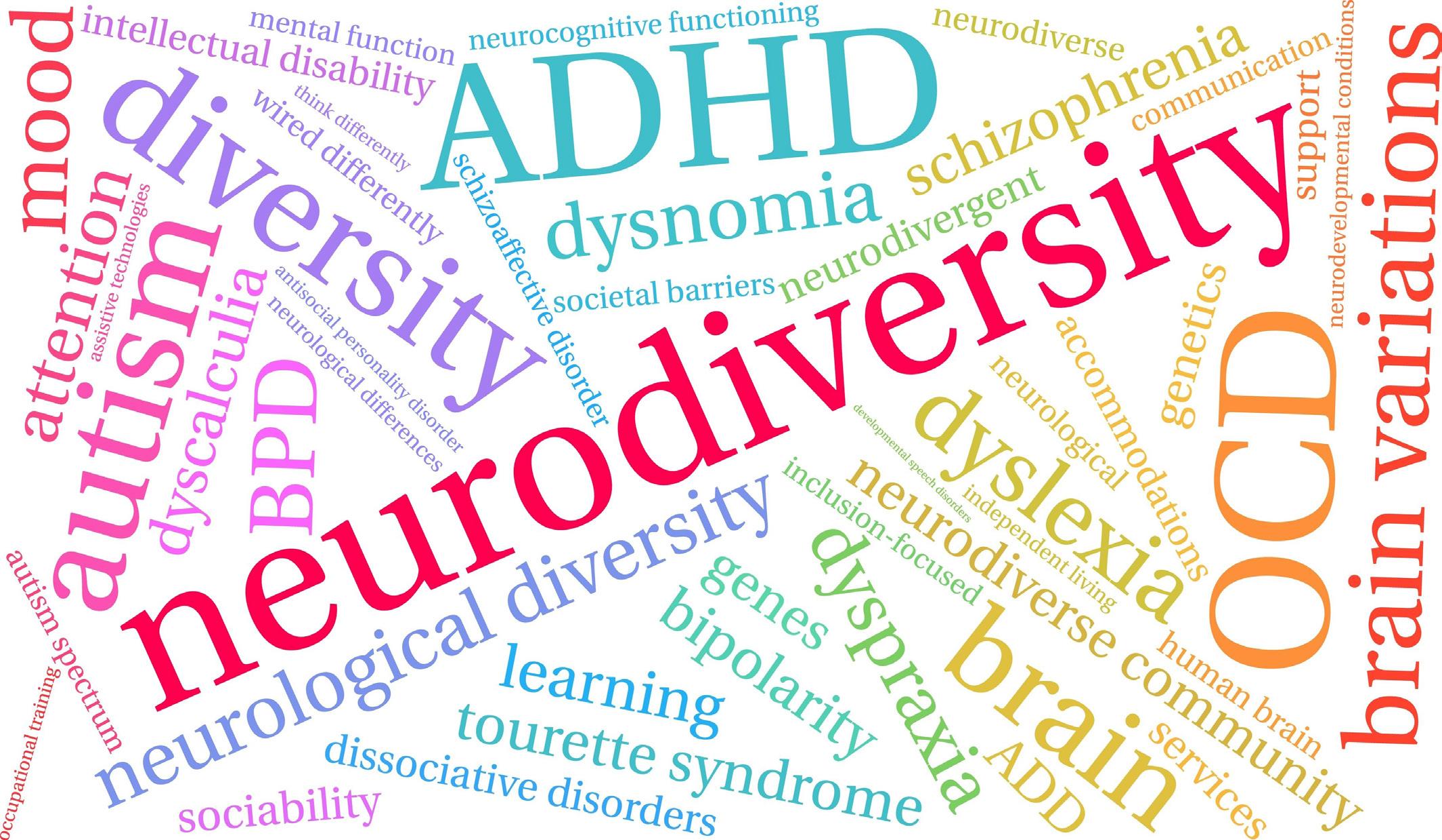
Source: Shutterstock
Here are five key considerations for mediators to support neurodivergent individuals in conflict transformation and promote understanding and respect in every interaction.
Conflict often intensifies when communication styles clash, and this is especially relevant when working with neurodivergent individuals who may communicate differently from their neurotypical counterparts. Neurodivergent people may prefer clear, direct, and low-context communication, where words mean exactly what they say without relying on implicit cues or “reading between the lines.” However, neurotypical individuals may use more hyperbole or contextdependent language, leading to misunderstandings and frustration on both sides. For instance, someone with ADHD might struggle to focus on long, detailed conversations, potentially missing key points or coming across as distracted. Those on the autism spectrum may rely on literal language, which could be misinterpreted as blunt or lacking in empathy by others.
Mediators should remain mindful of these differences and first adapt their own communication approach before, during, and after mediation. They can then facilitate effective communication in the room by encouraging all parties to clarify their intentions, build understanding, listen actively, and avoid making assumptions. By setting these standards, mediators help minimise misinterpretations and foster an atmosphere of mutual respect.
Neurodivergent individuals often bring distinctive cognitive processing styles that influence how they perceive and respond to conflict. For instance, individuals with autism may approach issues with a logical, detail-oriented perspective, focusing on facts and concrete evidence. In contrast, those with ADHD might respond more intensely in high-stress situations, especially when confronted with emotional conflict or complex information. Even listening behaviours can differ: fidgeting or stimming, common in neurodivergent individuals, is often misinterpreted by neurotypical parties as a lack of attention when in fact, these actions can aid focus and active listening in a neurodivergent context.

Source: Shutterstock
While everyone has a unique frame of reference, these processing differences introduce an added layer of complexity grounded in neurological function rather than solely lived experience. Recognising and addressing these distinctions is essential for effective conflict resolution, enabling all parties to be understood and engaged meaningfully in the process.
Mediators already play a crucial role in helping each party appreciate these perceptual differences, allowing them to view the conflict from multiple perspectives. However, unpacking these dynamics requires deeper curiosity, patience, and focus. This approach builds empathy and helps prevent unnecessary escalation driven by cognitive misunderstandings.
Many neurodivergent individuals experience heightened sensory sensitivity, contributing to their stress container and exacerbating conflict, especially in high-stimulus environments. For example, people with ADHD or autism may feel overwhelmed by loud noises, bright lights, or crowded spaces. In conflict situations, these sensory sensitivities can heighten emotions and make it more challenging for neurodivergent individuals to focus on problem-solving.
Understanding and accommodating sensory needs can significantly enhance a mediator’s effectiveness in conflict resolution. The environment plays a crucial role; this may involve selecting quieter, more neutral settings with plenty of natural light for in-person mediation or offering virtual options, allowing neurodivergent parties to control their surroundings. By creating a sensory-friendly atmosphere, mediators help neurodivergent individuals engage more fully, reducing the added stress that sensory overload can introduce into a conflict situation.
Neurodivergent individuals may face unique challenges with emotional regulation, which can influence how they respond to conflict. For example, individuals with ADHD may experience Rejection-Sensitive Dysphoria—a heightened emotional reaction to perceived criticism or frustration that can lead to impulsive responses. Similarly, people on the autism spectrum may have emotional processing delays, requiring additional time to understand and articulate their feelings fully.

Source: Shutterstock
As mediators, we’re already accustomed to creating space for emotional processing in the room, but when working with neurodivergent individuals, this requires heightened awareness and sensitivity. Differences in emotional regulation can contribute to conflict escalation, as neurotypical parties may misinterpret neurodivergent responses as overly intense, dismissive, hostile, or disengaged. Mediators can address these dynamics by intentionally allowing extra time for responses, validating each person’s emotional experience, and guiding participants
in recognising and articulating their feelings. By creating a supportive environment where neurodivergent individuals can process emotions at their own pace, mediators can help reduce miscommunication and cultivate an atmosphere of trust and understanding.
Many neurodivergent individuals experience internal conflicts, such as struggles with self-esteem, anxiety, and imposter syndrome. These internalised issues, often from years of feeling misunderstood or judged, can spill over into interpersonal conflicts. For example, someone with ADHD might have a deepseated fear of failure or a sense of inadequacy, making them more sensitive to criticism or negative feedback. These internal struggles can intensify reactions to external conflicts, causing neurodivergent individuals to respond defensively or withdraw.
Acknowledging internal and external conflicts is essential for mediators to understand the full picture of the dispute. Rather than viewing defensive behaviours as inherently combative, mediators can recognise them as potential indicators of deeper self-doubt or unresolved personal challenges. Encouraging neurodivergent participants to explore these internalised issues within the safe space of mediation can facilitate more productive, transformative conversations that address the surface conflict and its emotional roots.
In conclusion, neurodiversity brings valuable depth and complexity to mediation, shaping how individuals perceive, process, and respond to conflict. Transformative conflict resolution relies on empathy, clear communication, and adaptability, enriched by understanding neurodivergent dynamics. As mediators, we have a unique opportunity to bridge divides by recognising how neurodiversity influences conflict. By appreciating different cognitive styles, accommodating sensory needs, supporting emotional regulation, and acknowledging internal challenges, we create a space where genuine understanding and conflict transformation are possible. This inclusive approach empowers all parties to engage fully, creating an environment where neurodivergent perspectives are valued and each individual feels seen, heard, and accepted.
Embracing the link between neurodiversity and conflict allows us to build a mediation process that resolves disputes and promotes empathy, understanding, and respect, making a lasting impact on all involved. In doing so, we move closer to a culture where diversity is accommodated and celebrated, enhancing the overall effectiveness and humanity of the mediation field.
Marie Coombes, CEO of We Restore Calm, is a conflict transformation specialist recognised for her pioneering work in neurodiversity and mental health. Recently shortlisted for the Civil Mediation Council’s Diversity & Inclusion award, Marie combines professional expertise with lived experience to create inclusive, empathetic, and transformative resolutions.


‘Your discussions with mediator are not shared without your consent’

Timing and agenda to suit your needs

All parties agree to participate to try

Fixed fee which is far cheaper than court.

... You agree the outcome, solution and any agreement

‘ Mediation can be completed within 14 days’

The mediator does not judge or take sides



Retention/ Recruitment
Mediation ensures disputing parties feel understood and heard. Ideal for emotionally charged disputes, mediation can calm the conflict driving the dispute whereas adversarial argument and positioning inflames and drives conflict and escalates disputes.
Mediation can help parties to agree a solution, draw a line and move forward or continue relationships between business partners, employees and employers and friends, neighbours and family. It can salvage and protect reputations.
Litigation is expensive and can take years and frequently the costs exceed the value of the dispute.

Simpler process than litigation/court

Improves teamwork/ productivity/ profitability

e: jean.mcdougall@focuscivilmediation.co.uk
w: www.focus-mediation.co.uk
t: +44 (0)7706 705149
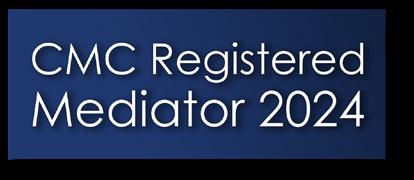
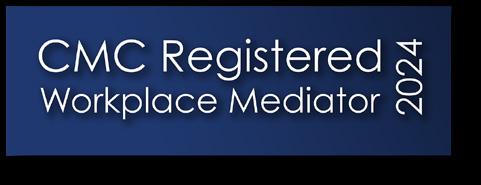
(1) MEDIATION PROVIDERS
(2) TR AINING PROVIDERS
(3)INTERNATIONAL MEDIATION PROVIDERS
t: +44 (0)20 7831 0254 e: alex.efthymiades@consensiopartners.co.uk w: www.consensiopartners.co.uk a: 30 Niton Street, London, SW6 6NJ Contact: Alex Efthymiades
Consensio is a leading workplace mediation provider, helping organisations to manage workplace conflict. Our services include: 1) mediation and conflict resolution training ranging from taster events to accredited training, 2) external mediation services for two-party and team disputes, 3) conflict coaching and 4) consultancy services to transform organisational responses to conflict.
t: +44 07706 705149 / +44 1908 804968 e: jean.mcdougall@focuscivilmediation.co.uk w: www.focus-mediation.co.uk Contact: Jean McDougall (Case Manager)
Focus has been providing mediation services for over 20 years. Focus has a panel of fully accredited and experienced Civil/Commercial, Workplace/Employment and Family mediators with a wide range of professional backgrounds who cover the whole of the UK, ensuring you can choose the right specialist mediator for your dispute. Our team have handled cases involving from 2 to 50+ people. We can tailor the right programme to meet your needs saving you management and personal, stress, time and costs.
t: +44 (0)20 7993 7600 e: mediationclerks@gclaw.co.uk w: gardencourtmediation.co.uk a: 57-60 Lincoln’s Inn Fields, London WC2A 3LJ Contact: Lavinia Shaw-Brown
We offer a flexible, high-quality mediation service from the initial inquiry through to facilitating agreement. We have a team of experienced, professional mediators with the interpersonal skills to suit all civil, commercial, workplace and family disputes. Our aim is to help you find a resolution to the dispute quickly and effectively.
t: +44 (0)798 537 3010 e: james@inmancox.com w: www.inmancox.com
Established for over 5 years, Inman Cox Mediation are specialist workplace resolution mediators. We provide expert advice, mediation and co-mediation services as well as on-going support and training. ICM provides organisations with the tools needed to resolve future disputes and help prevent them from arising in the first instance. Working with a select number of organisations we work with HR professionals to get disputes resolved quickly. Our experience has led us to develop a number of bespoke training packages to deal with team dysfunction. Contact: James on 07985373010 or james@inmancox.com for a free consultation. www.inmancox.com
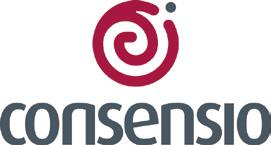



t: +44 (0)20 7127 9223 e: imoffice@independentmediators.co.uk w: www.independentmediators.co.uk
Launched in 2007, Independent Mediators (IM) is a leading UK and international mediation chambers. IM were awarded Who’s Who Legal Mediation Firm of the Year 2019 in May 2019. We manage the practices of nine of Europe’s leading full-time civil and commercial mediators; Charles Dodson, Phillip Howell-Richardson, Kate Jackson, Michel Kallipetis QC, Jonathan Lloyd-Jones, Mark Lomas QC, Bill Marsh, Andrew Paton and Nicholas Pryor. All nine mediators feature in the top tiers of the leading legal directories. They have mediated in excess of 8,500 matters between them in their careers. The commercial disputes mediated range in value from tens of thousands to multi-billion pounds and include almost every sector of business and law with parties from all over the UK and internationally.
t: +44 (0)333 014 4575 e: info@mediate.co.uk w: www.mediate.co.uk
a: The International Dispute Resolution Centre, 1 Paternoster Lane, London EC4M 7BQ
Contact: Joanne Claypole
Leading UK and International Mediation Chambers established in 1995. Handling civil, c ommercial, family, workplace and employment disputes. Our mediators have, between them, mediated thousands of disputes and many of our members are recognised as expert mediators by the legal directories. In addition, we offer a full case administration service; from helping the parties select a mediator to arranging the date, venue and paperwork necessary to make your mediation as smooth and as successful as possible.
t: +44 (0)20 7583 9808 e: mrushton@jamsadr.com w: www.jamsadr.com
JAMS is the world’s largest private provider of ADR services with a caseload of around 15,000 disputes a year. It’s London office provides arbitrators and mediators for cross-border and UK domestic disputes as well as administering international arbitrations in various sectors.
t: +44 7958 973 389 e: karima.fahmy@independentneutral.com w: www.independentneutral.com
Karima is a CEDR accredited and CMC registered Civil, Commercial and Workplace mediator. Having practised as a Corporate lawyer for over 20 years, Karima has extensive experience of helping parties resolve their differences and reach mutually satisfactory outcomes. Karima’s mediation practice is focussed on employment and workplace disputes; real estate and construction disputes; joint venture, shareholder and board disputes. Prior to sitting as a mediator, Karima was General Counsel of an international real estate investment and development business. Prior to that she spent 10 years at Hogan Lovells. Karima brings experience of navigating complex and sensitive commercial and stakeholder contexts.



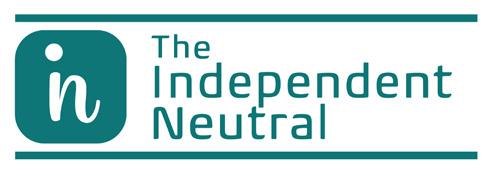

KINGSWAY LAW
t: +44 (0) 7825 894 893 e: larry.george@kingswaylaw.uk w: linkedin.com/in/larry-george-b9114a46 w: P.O. Box 516, Cambridge CB1 0BD Contact: Larry George
Qualified Barrister; CEDR accredited mediator, 2010. Larry has 30+ years of experience as a commercial legal adviser advising on corporate and commercial matters. He has specialised in the oil business including oil trading but also has a great deal of experience in general commercial areas including in contracts, terms of trade and related disputes. Mediation experience includes franchising, engineering contracts and professional negligence. Larry has wide international experience and is a fluent Russian speaker.

t: +44 (0)7957 8 12345 e: mia@miaforbespirie.com w: www.miaforbespirie.com
Mia Forbes Pirie is a mediator, executive coach and trainer. She works with teams, boards and directors, family businesses and individuals in conflict. Mia helps people to work better together and communicate under pressure. In addition to commercial clients, she has worked with MPs, governments, religious organisations, NGOs, and charities. Mia provides training online and in person. She is writing a book and working with UCL to help people Disagree Well. For more information see: www.miaforbespirie.com and her YouTube Channel : @miaforbespirie5289
t: +44 7905 868 058 e: tony@achievesuccess.org.uk w: www.maverickmediator.co.uk
Anthony Munday is an independent ACAS-accredited workplace mediator. He specialises in working with conflicted Senior Teams. His previous career as a detective and senior leader enables him to empathise with clients in senior management positions. He has developed a unique Conflict Resolution Method. Anthony works in partnership with HR Leaders to conduct a root-cause analysis of the impact of conflict in the organisation. The financial and human costs of conflict for the client are extrapolated. They use the client’s own data to create an inclusive and holistic Action Plan to mitigate future Risks and Costs.
t: +44 (0)20 3621 3908 w: www.promediate.co.uk
ProMediate provides mediation for the whole range of civil and employment disputes as well as being a CMC Registered Training Provider. We also resolve disputes between traders and consumers under the ADR Regulations. We have a panel of over 50 mediators available to mediate online by telephone or in person throughout the UK and in the EU.
ROGER LEVITT
t: +44 (0)7776 141 717 e: roger@rogerlevittmediation.co.uk w: www.rogerlevittmediation.co.uk
I undertake all types of commercial mediation including: Property, Construction, Partnership, Corporate, Professional Indemnity, Insurance Financial & Wills. Member of Civil Mediation Council Registration Committee. I’m approaching 100 mediations.



t: +44 (0)7932 762 448 e: robert@stillhr.com w: www.stillhr.com Contact: Robert Still Qualified workplace and team mediators. Robert Still FCIPD, Leye Oladapo and Paula Symons. Over 10 years’ experience across the UK and Europe. CMC Registered Mediation Provider 2019. Resolving individuals and team conflict.
t: +44 (0)20 3753 5350 e: caroline.sheridan@sheridanworldwide.com w: www.sheridanworldwide.com
Contact: Caroline Sheridan
At Sheridan, we help organisations worldwide maximise their potential and drive lasting change by providing the guidance and inspiration necessary for their people to succeed. Our award-winning work focuses on tailored one-to-one, team and group coaching to support the development of leadership and management capabilities, as well as mediation and conflict resolution interventions across the business. Our specialists in organisational culture, wellbeing, inclusion and team dynamics partner with clients to ensure a tailored approach. We supply our coaching and mediation services in the UK and internationally through our extensive faculty based around around the world in all key locations.
t: +44 (0)20 7092 3186 e: david.liddle@thetcmgroup.com w: www.thetcmgroup.com
TCM are a leading provider of conflict management, mediation, HR and leadership training and consultancy. We deliver tangible benefits to our customers by transforming conflict and change from a threat into an opportunity. For more details, please Read Managing Conflict (Kogan Page/ CIPD) available from https://amzn.eu/d/4jRZ7mB written by TCM’s CEO David Liddle.


t: +44 (0)7305 062 578 e: askforhelp@werestorecalm.com w: www.werestorecalm.com
At We Restore Calm, we recognise the growing impact of mental health challenges and conflicts in the workplace. We specialise in comprehensive mental health training, including Mental Health First England certified courses. We also offer state-of-the-art conflict resolution solutions ranging from executive coaching, mediation, to team workshops and neutral evaluations. The goal? To empower organisations like yours to enhance employee engagement, reduce absenteeism, and, in turn, boost overall productivity. Think of us as the catalyst to not just elevate your workplace atmosphere but also positively impact your bottom line. Let’s foster a resilient, harmonious, and productive environment together.

t: +44 (0)20 7831 0254 e: alex.efthymiades@consensiopartners.co.uk w: www.consensiopartners.co.uk a: 30 Niton Street, London, SW6 6NJ Contact: Alex Efthymiades
Consensio is a leading workplace mediation training provider, helping organisations to manage workplace conflict. Our services include: 1) mediation and conflict management training, ranging from taster events to accredited training, 2) external mediation services for two-party and team disputes, 3) conflict coaching and 4) consultancy services to transform organisational responses to conflict.
t: +44 7905 868 058 e: tony@achievesuccess.org.uk w: www.maverickmediator.co.uk
We are developing CPD-accredited training courses. Employment Conflict Resolution ACAS estimates the cost of workplace conflict as £28.5 billion per year in the UK. Do you know the costs in your organisation? We have developed a coherent and sustainable strategy that empowers you to mitigate the costs of workplace conflict. We use a root-cause analysis methodology using your data sets. Real-time. Real life. Working together with your People Team and the C Suite we create a realistic Action Plan that you implement. We support you moving forward, to embed the learning and cultural change.
t: +44 (0)20 3621 3908 w: www.promediate.co.uk
ProMediate provides mediation for the whole range of civil and employment disputes as well as being a CMC Registered Training Provider. We also resolve disputes between traders and consumers under the ADR Regulations. We have a panel of over 50 mediators available to mediate online by telephone or in person throughout the UK and in the EU.
t: +44 (0)7932 762 448 e: robert@stillhr.com w: www.stillhr.com Contact: Robert Still
Facilitated Conversations and Mediation Skills; delivered in-house by qualified and practicing workplace mediators, tailored to client organisational context, includes role play simulations using professional actors.
t: +44 (0)20 7092 3186 e: david.liddle@thetcmgroup.com w: www.thetcmgroup.com
TCM are a leading provider of conflict management, mediation, HR and leadership training and consultancy. We deliver tangible benefits to our customers by transforming conflict and change from a threat into an opportunity. For more details, please Read Managing Conflict (Kogan Page/ CIPD) available from https://amzn.eu/d/4jRZ7mB written by TCM’s CEO David Liddle.


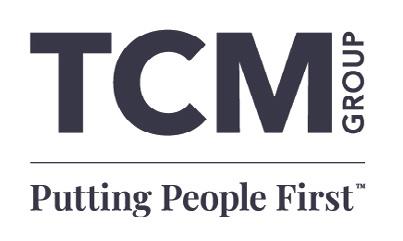
t: +44 (0)20 7831 0254 e: alex.efthymiades@consensiopartners.co.uk w: www.consensiopartners.co.uk a: 30 Niton Street, London, SW6 6NJ Contact: Alex Efthymiades
Consensio is a leading workplace mediation and conflict management provider, supporting organisations to informally manage workplace conflict in the UK, Europe and Asia.

t: +44 (0)333 014 4575 e: info@mediate.co.uk w: www.mediate.co.uk
a : The International Dispute Resolution Centre, 1 Paternoster Lane, London EC4M 7BQ
Contact: Joanne Claypole
Leading UK and International Mediation Chambers established in 1995. Handling civil, commercial, family, workplace and employment disputes. Our mediators have, between them, mediated thousands of disputes and many of our members are recognised as expert mediators by the legal directories. In addition, we offer a full case administration service; from helping the parties select a mediator to arranging the date, venue and paperwork necessary to make your mediation as smooth and as successful as possible.
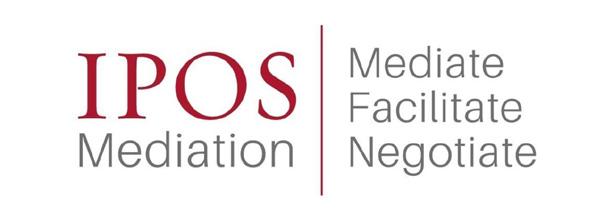
t: +44 (0)20 7127 9223 e: imoffice@independentmediators.co.uk w: www.independentmediators.co.uk
Launched in 2007, Independent Mediators (IM) is a leading UK and international mediation chambers. IM were awarded Who’s Who Legal Mediation Firm of the Year 2019 in May 2019. We manage the practices of nine of Europe’s leading full-time civil and commercial mediators; Charles Dodson, Phillip Howell-Richardson, Kate Jackson, Michel Kallipetis QC, Jonathan Lloyd-Jones, Mark Lomas QC, Bill Marsh, Andrew Paton and Nicholas Pryor. All nine mediators feature in the top tiers of the leading legal directories. They have mediated in excess of 8,500 matters between them in their careers. The commercial disputes mediated range in value from tens of thousands to multi-billion pounds and include almost every sector of business and law with parties from all over the UK and internationally.
t: +44 (0)20 3621 3908 w: www.promediate.co.uk

ProMediate provides mediation for the whole range of civil and employment disputes as well as being a CMC Registered Training Provider. We also resolve disputes between traders and consumers under the ADR Regulations. We have a panel of over 50 mediators available to mediate online by telephone or in person throughout the UK and in the EU.

t: +44 (0)20 7092 3186 e: david.liddle@thetcmgroup.com w: www.thetcmgroup.com
The TCM Group designs and delivers award winning mediation, conflict management, employee relations and leadership consultancy in the UK and globally. We can deliver assignments across the world, often at short notice. Our fully accredited mediation, investigation and leadership training programmes can be adapted to meet your political, legal or cultural context. Our highly experienced tutors, mediators and facilitators are available to support you at every stage of your resolution journey plus, we apply industry leading technology to support our assignments. Please contact us now on +44 207 092 3186 for more information and a no obligation discussion.






The Medico-Legal Conference has now firmly established itself as the UK's leading event bringing together medico-legal professionals, industry experts, and suppliers. Attend to experience our high-level programme of speakers, interactive exhibition zone, and networking. The conference takes place at Congress Centre, London on Thursday 12th June 2025. Book now and benefit from our 30% off early bird offer Be nefits of Atte nding:
• Be updated on the latest medico-le
• Be updated on the latest medico-le gal developments, reforms and i ssues
• in some of the most recent high profile cases
• Learn about the increasing role of mediation in settling medico-legal claims
• in some of the most recent high profile cases
• ficulties
• Learn about the increasing role of mediation in settling medico-legal claims
• ficulties
•
• Enjoy excellent networking opport unities, including a Champagne reception






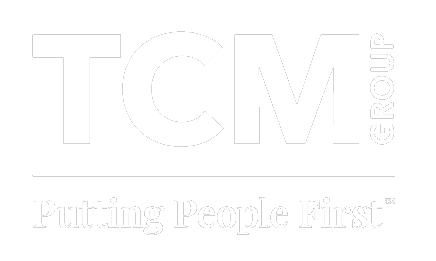




Train


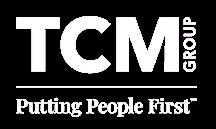
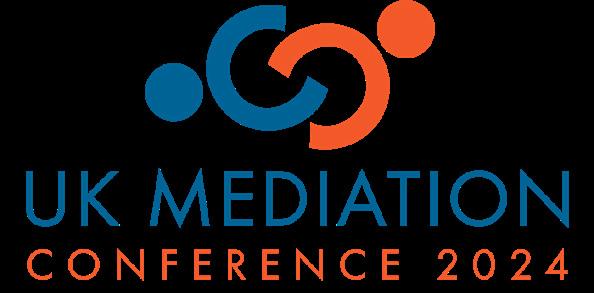
25st November 2024, Congress Centre, London
Master of Ceremonies - Matthew Stadlen
8:30am - Badge Collection
9:20am - Opening Keynote: What is the impact of workplace conflict – and what can we do to fix it?
Kate Nowicki, Director of Dispute Resolution, Acas
10:00am - Redefining Resolution
– introducing a radical new approach for managing grievance and discipline at work
David Liddle, CEO and Founder, The TCM Group
10:40am - The lost art of negotiation - how to get it right in a crisisNicky Perfect, Hostage Negotiator
11:20am - Refreshments & Networking
11:40am - Conflict 2.0: Addressing the skills gap beyond mediation
Alexandra Efthymiades, Director and Co-founder, Consensio
12:20pm - Disagreeing Well: Why is it so hard and how we fix it?
Mia Forbes Pirie, Mediator, Facilitator, and Coach
12:50pm - Lunch & Networking
1:50pm - Getting engaged at work
Caroline Sheridan, CEO and Mediator, Sheridan Worldwide
David Whincup, Partner and Employment Lawyer, Squire Patton Boggs
2:30pm - Psychological safety in the workplace and how to create safe spaces
Penny Newton-Hurley, Founder of CommPassion
3:10pm - Mediating sexual harassment and mental health absence issues at workA useful tool or asking for trouble?
David A Evans, Mediator, IPOS Mediation
Liz Rivers, Mediator, IPOS Mediation
3.50pm - Refreshments & Networking
4.10pm - Making the case for mediation
Joanna Nunn, Assistant Chief Conciliator, Acas
4.50pm - The Engagement Toolkit: Concepts, Tools and Creative Techniques to Boost Employee morale and Empower Team Progress
Kheron Gilpin, Tutu Foundation UK
5:25pm - Closing Comments
5:30pm - Close
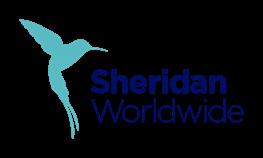





8:30 am BADGE COLLECTION
9:20 am
OPENING KEYNOTE:
Kate Nowicki, Director of Dispute Resolution, Acas
Workplace disputes cost British Businesses nearly £30bn a year and impacts over one-third of the workforce. That’s £2.8 billion cost to the British economy of sickness caused by workplace conflict; £10.5 billion cost to businesses of dismissals caused by conflict; and nearly £12 billion cost to businesses for people resigning due to workplace conflict. There must be more we can do to improve the economic outlook and help GB plc to grow. Kate will set out the business case to illustrate that early, less formal procedures work – they are effective in resolving disputes, cost less in time and resources, and can more quickly rebuild workplace trust and engagement. The phrase ‘nip problems in the bud’ sounds simple, but evidence suggests that line managers lack the necessary skills and confidence to avoid many conflicts from escalating into disputes positions. Kate will provide evidence on the discipline and grievance process; and she will set out the case for mediation. She will illustrate how we can relearn how to ‘disagree well’. This is an unmissable session for anybody who works in HR, Industrial Relations, mediation or runs a small business.
10:00 am
David Liddle, CEO and Founder, The TCM Group
In his keynote, David will explain why the traditional policies and codes for managing grievance and discipline don’t work and are intrinsically damaging. In contrast, he will set out the many applications and benefits of his progressive and multi award-winning Resolution Framework™. Drawing from case studies such as the BBC, Next PLC, Burberry, TSB Bank, The Financial Ombudsman Service, Numerous NHS Trusts and The University of Bath, David will set the Resolution Framework into the context of a rapidly changing HR, legal and leadership context. David coined the term Integrated People Policy (IPP) to describe the Resolution Framework. It provides a legally compliant system for delivering a modern form of transformative justice. It is designed to handle serious and complex cases including misconduct, bullying, discrimination, harassment and fraud as well as employee conflicts and managerial concerns. Participants will also be offered a free open-source copy of the Resolution Framework.
10:40 am
Nicky Perfect, Hostage Negotiator
Nicky will talk about what negotiating in hostage situations has taught her about communication techniques to dial down a conflict situation. She will provide real life stories which illustrate the importance of Perspective, Trust and Listening, especially when emotions are running high. And what the lessons learnt can be for anybody dealing with workplace conflict.
11:20 am
REFRESHMENTS & NETWORKING






11:40 am
CONFLICT 2.0: ADDRESSING THE SKILLS GAP BEYOND MEDIATION
Alexandra Efthymiades, Director and Co-founder, Consensio
In recent years, the informal management of workplace conflict has advanced. This is due to a greater understanding of conflict, enhanced organisational processes, and the increased use of specialist support, such as mediation. Yet, employees are just as likely to end up in destructive conflict as ever, perhaps even more so. Making further progress in this business-critical field requires an upgrade in organisational thinking, including sharing conflict management skills more widely across the organisation. This interactive session will explore some of the key skills that everyone can develop to help build stronger working relationships.
12:20 pm
DISAGREEING WELL: WHY IS IT SO HARD AND HOW WE FIX IT?
Mia Forbes Pirie, Mediator, Facilitator, and Coach
Mia will talk about the current crisis of polarisation. Why it exists and provides some tools to fix it.
12:50 pm LUNCH & NETWORKING
1:50 pm GETTING ENGAGED AT WORK
Caroline Sheridan, CEO and Mediator, Sheridan Worldwide
David Whincup, Partner and Employment Lawyer, Squire Patton Boggs
You have bought into the principles of mediation in the workplace but are faced with employees brought up with traditional adversarial dispute resolution procedures and reluctant to try anything different. What can you say to persuade them to engage with the process? What leverage do you have, what assurances can you give, how far can you insist on their trying mediation as a first resort?
2:30 pm
Penny Newton-Hurley, Founder, CommPassion
The term ‘Psychological Safety’ has been creeping into the workplace over the last few years, but what does it really mean? How can we tell if our organisation is psychologically safe, and how can we start ensuring it is?
In her talk, Penny will be highlighting the wide-ranging benefits of Psychological Safety and the unsafe barriers that lead to conflict and low productivity. She will introduce the key competencies that leaders and individuals need for creating a psychologically safe culture and empowering colleagues to offer their full contribution. Penny will be covering:
• The concept of Psychological Safety
• The key barriers and sometimes disastrous consequences
• The benefits to individuals and to the organisation
• The relationship between Psychological Safety and mediation
• How to measure Psychological Safety in teams
• Strategies and tools for creating safe spaces and a psychologically safe culture






3:10 pm
MEDIATING SEXUAL HARASSMENT AND MENTAL HEALTH ABSENCE ISSUES AT WORK - A USEFUL TOOL OR ASKING FOR TROUBLE?
David A Evans, Mediator, IPOS Mediation
Liz Rivers, Mediator, IPOS Mediation
Dealing with sexual harassment at work is a hot potato for employers - even more so since the new obligation on employers to protect staff has come into effect. Dealing with cases where employees go off sick with stress can also be challenging for employers. Used inappropriately, HR risk being accused of sweeping things under the carpet if they suggest mediation. On the other hand, used well, mediation has the ability to empower complainants, encourage honest reflection and leave both employees and the organisation in a better place. In this session you will hear concrete examples of the effective use of mediation for some mental health absence cases, and sexual harassment, plus red flags to watch out for of when NOT to use it.
3:50 pm REFRESHMENTS & NETWORKING
4:10 pm
MAKING THE CASE FOR MEDIATION
Joanna Nunn, Assistant Chief Conciliator, Acas
When facilitating mediation, it is essential that the parties involved are participating willingly and have bought into the process. Setting the right tone from the beginning can be crucial to a positive outcome. So, from organisational perspective how do you make the case to employees to engage with mediation? Acas Collective Dispute Manager, Joanna Nunn, will examine this often-overlooked part of the mediation process – how to have that conversation with colleagues, practical considerations and most fundamentally, making the case for mediation.
4:50 pm
THE ENGAGEMENT
Kheron Gilpin, Tutu Foundation UK
Inspired by the Tutu Foundation UK’s Ubuntu Round Table Project, this keynote explores transformative activities and philosophies that have successfully bridged the gap between disadvantaged communities and the Metropolitan Police across ten London boroughs. By fostering dialogue, building mutual respect, and promoting empathy, these engagements have paved the way for meaningful connections and positive change, rooted in the spirit of Ubuntu – “I am because we are.” Through creative collaboration and shared understanding, this approach has addressed critical social divides and strengthened community cohesion.
5:25 pm CLOSING COMMENTS
5:30 pm CLOSE










Matthew Stadlen is a British television and radio presenter with experience in hosting 400 live events. He has presented and produced TV shows for the BBC, hosted twice weekly radio shows on LBC and written The Matthew Stadlen Interview in the Telegraph. He has interviewed leading names from business, politics, sport and entertainment.
Kate is Director of Dispute Resolution. Kate joined Acas in 1993 as an individual conciliator and was Acas’s area director for the East Midlands for more than 10 years. Kate recently led Acas’s strategic planning, performance and change directorate, working with external and internal stakeholders, leading the development of the Acas strategy.
David established The TCM Group in 2001. He has built a world class team with a reputation to match. TCM specialises in the three areas of culture, climate and conflict resolution. In 2021, David was recognised as a top HR most influential thinker and he is a member of the prestigious Thinkers 50 Radar. He is author of two books Managing Conflict and Transformational Culture published by Kogan Page. The latter was shortlisted for business book of the year 2022 and the 2nd edition of Managing Conflict is being published in October 2023. David is also president of the People and Culture Association (www.peopleprofessionals.org).
Nicky spent 31 years as a Metropolitan police officer and the last 10 of those years as an international hostage and crisis negotiator. Nicky worked on the elite New Scotland Yard Hostage and Crisis Negotiation Unit. She has travelled the world teaching negotiation and working with Her Majesties Government on international operations and had the privilege of talking to hundreds of people in crisis. In the 2022 Queen’s New Year’s Honours List, she was awarded the British Empire Medal for “meritorious service to the community during the pandemic”, this led to an invitation to the Kings Coronation in 2023. She is the author of the best selling book “Crisis – true stories from my life as a hostage negotiator” published by HQ Harper Collins. Nicky lives with her partner, step daughter, 8 goats, 4 dogs and 2 pigs. In her own words “life is never boring”.










Alexandra has nearly 20 years of experience in the field of organisational conflict resolution and mediation. She holds two Master’s degrees, including an M.A. in Organisational Psychology. She has worked internationally in New York and at the United Nations in Geneva. Alexandra is the co-founder and Director of Consensio, one of the UK’s leading conflict management and workplace mediation services providers. Consensio empowers clients to informally manage workplace conflict and build resilient workplaces, enhancing the well-being of organisations and their people. Consensio offers support in all areas of conflict management, providing consultancy, leadership development, training, e-learning, coaching and mediation services. Clients include: the BBC, British Gas, Bupa, Nespresso, Sony, University of Cambridge, Westminster City Council, NHS Trusts, WWF and Unicef.
Mia is an award-winning mediator and coach to visionary leaders, teams and families. Unafraid to broach the issues that many shy away from, she helps people have transformative conversations. Since leaving her career as a City of London solicitor in 2007 Mia has worked on a wide range of topics such as business, sustainability, race, gay marriage, and the refugee crisis with clients ranging from the G7 countries and the Government of Mongolia to the Church of England. She is working on a book and video series on how to disagree well. Clients at Microsoft have referred to her as “the Einstein of EQ.”
Caroline is CEO of Sheridan Worldwide, operating a global faculty of executive coaches and facilitators alongside her award winning mediation practice. She has consistently appeared in both the Chambers UK and Legal 500 directories and is regularly sought to mediate workplace/ employment and commercial cases. Having chaired the Civil Mediation Council’s Workplace and Employment group and served as a CMC Board member, Caroline specialises in the repair and restoration of valuable workplace relationships which appear damaged beyond remedy. She has been instrumental in spreading mediation within organisations resulting in an increase in cases going to mediation both internally and externally. Caroline has a strong commercial background having worked at Director and Board level in investment banking and held Head of Compliance and HR roles for both UK and international corporates and finance institutions.
David’s 40 year experience as a specialist employment law practitioner covers a wide variety of employment-related issues, including recruitment, disciplinary and grievance procedures, the defence of employee discrimination and dismissal claims, employee health, data protection and intellectual property and confidentiality matters among others. David’s clients span from senior individuals to household-name corporates and across all sectors, with particular expertise in the financial services sector. David is a well-known speaker on employment matters, both in-house to clients and for commercial training providers, and is a regular contributor to employment publications. He is an accredited CEDR Mediator and a keen exponent of the role of mediation in the modern workplace, scoring significant successes for corporate and individual clients through that route. He is a member of the workplace and employment sub-group of the Civil Mediation Council. David was recently named in the Best Lawyers in the United Kingdom and Who’s Who Legal publications and has been a fixture in both the Chambers and The Legal 500 directories for many years.






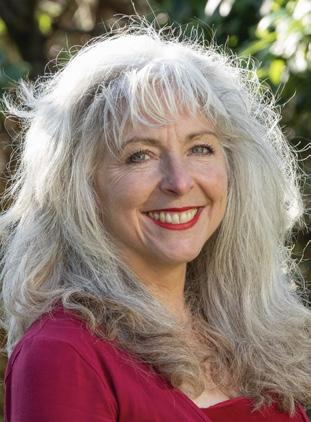
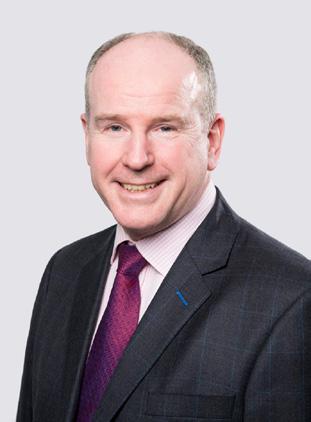


Penny Newton-Hurley brings a strategy of compassion to her work with CEOs, leaders, teams and individuals. She believes Psychological Safety not only transforms culture and engages employees, but boosts innovation, financial performance, growth and wellbeing. In the wider context she believes compassionate communication has the power to change how the world speaks and listens. Penny is founder of Commpassion Ltd, working with large multinationals in the private sector and organisations across government, military, health, and education. She is a Fearless Organisation Psychological Safety facilitator and trainer, workplace mediator, interpersonal communication and emotional intelligence specialist, coach and trainer, and listening volunteer.
David specialises in resolving people and relationship issues in business, with over 30 years experience in employee relations, HR leadership and business management. David started his career in industrial relations at Ford Motor Company and has been a mediator since 2003. He focuses on Executive and Workplace mediation, where the parties need to maintain a continuing relationship after the mediation, and Board effectiveness, where Boards need to encourage positive conflict between Directors. David believes that Workplace Mediation can be a more powerful tool to resolve workplace conflict than formal processes, for example in reducing the length and cost of mental health sickness cases.
Liz Rivers is a workplace mediation expert, women’s leadership coach and member of the IPOS panel. The first woman to become a CEDR accredited mediator in the UK, she has been mediating for over 30 years. She’s formerly a commercial litigation solicitor with Eversheds Sutherland and is a member of the CEDR training faculty. Liz has given evidence to the Women and Equalities Select Committee on the use of mediation to address sexual harassment disputes in the workplace.
Joanna is the Assistant Chief Conciliator leading the collective conciliation team covering the South of England and Wales. As an accomplished Conciliator, Facilitator and Mediator she works with and supports organisations and trade unions through their dispute resolution processes as well assisting parties to improve their industrial relations pre and post dispute. Joanna has been an Acas mediator for 16 years and also has extensive experience training mediators both internally, and for external organisations.







Kheron Gilpin is an engagement specialist with over a decade of experience in community development and educational interventions. His work encompasses motivational speaking, engagement training for educators, and facilitation of events and dialogues. He began his career in community development by eagerly taking, and making, opportunities for himself and others in his home area of South London. As a young community leader, Kheron worked as a peer outreach worker for the Greater London Authority while also founding initiatives, including a youth group within South London Tenants Associations called Alwayz Kreative that provided creative opportunities for young people. Kheron’s skills in public speaking and facilitation have led him to be enlisted by the Tutu Foundation to facilitate difficult dialogues, including between police and young offenders. Kheron had also been commissioned by brands such as Nike, JD and Sports Direct to run community engagement events and deliver youth engagement consultancy. Kheron now specialises in educational engagement and works with schools and colleges around the UK to maximise their student engagement strategies and deliver impactful talks, workshops and assemblies. Kheron has a strong commitment to making a positive impact, not only by sharing practical tools and strategies but also by embodying the values of unity and action, inspired by Ubuntu, an African philosophy that emphasises our interconnectedness and shared humanity.






w: www.acas.org.uk

Acas is a Government agency, independent from Ministerial control. We provide free and impartial advice to employers, employees and their representatives on employment rights and best practice and policies; and have a statutory role to resolve workplace conflict between groups of employees (often via trade unions) and their employers, between individual employees, and between individuals and their employers. Our front line services and research and policy programme provide deep insight on the world of work which we use to identify opportunities and influence policy makers.
w: www.sheridanworldwide.com
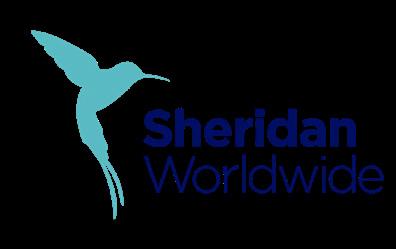
At Sheridan, we help organisations worldwide maximise their potential and drive lasting change by providing the guidance and inspiration necessary for their people to succeed. Our award-winning work focuses on tailored one-to-one, team and group coaching to support the development of leadership and management capabilities, as well as mediation and conflict resolution interventions across the business. Our specialists in organisational culture, wellbeing, inclusion and team dynamics partner with clients to ensure a tailored approach. We supply our coaching and mediation services in the UK and internationally through our extensive faculty based around around the world in all key locations.
w: www.thetcmgroup.com
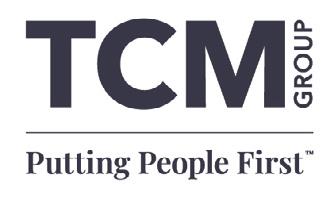
TCM are a leading provider of conflict management, mediation, HR and leadership training and consultancy. We deliver tangible benefits to our customers by transforming conflict and change from a threat into an opportunity. For more details, please Read Managing Conflict (Kogan Page/CIPD) available from https://amzn.eu/d/4jRZ7mB written by TCM’s CEO David Liddle.
w: www.mediate.co.uk
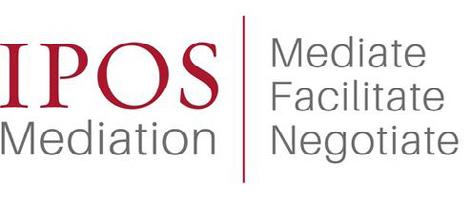
IPOS Mediation is an award-winning dispute resolution chambers of over 30 mediators, offering negotiation, facilitation and mediation. Whether it’s help with difficult conversations or a cost-effective alternative to litigation, you can trust us to bring parties closer together. We mediate a full range of civil and commercial, family business, workplace, employment and public sector disputes. We’re known as ‘the Oxbridge of mediators’, bringing together the best of the best. Over 30 years our mediators have mediated over 20,000 disputes. The majority of our mediators have been recognised in the Legal 500 and Chambers & Partners for their expertise and experience.






w: www.consensiopartners.co.uk
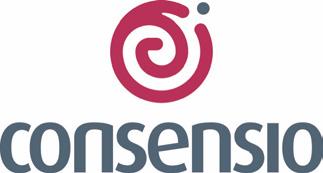
Consensio is a leading workplace mediation provider, helping organisations to manage workplace conflict. Our services include: 1) mediation and conflict resolution training ranging from taster events to accredited training, 2) external mediation services for two-party and team disputes, 3) conflict coaching and 4) consultancy services to transform organisational responses to conflict.
w: www.commpassion.co.uk

CommPassion is a Psychological Safety, conflict resolution and communication skills consultancy, and our mission is to ‘change the way the world speaks’. Using an innovative communication model, we provide organisations with sustainable, future proofing solutions that strengthen relationships and create a culture that thrives on authenticity, inclusion and diversity. We help colleagues communicate in a way that empowers authentic connection and creates an environment where they feel valued, motivated and psychologically safe, leading to strong engagement, high performance and wellbeing. We deliver Psychological Safety programmes, mediation and advanced communication skills coaching and training, all tailored to client needs.






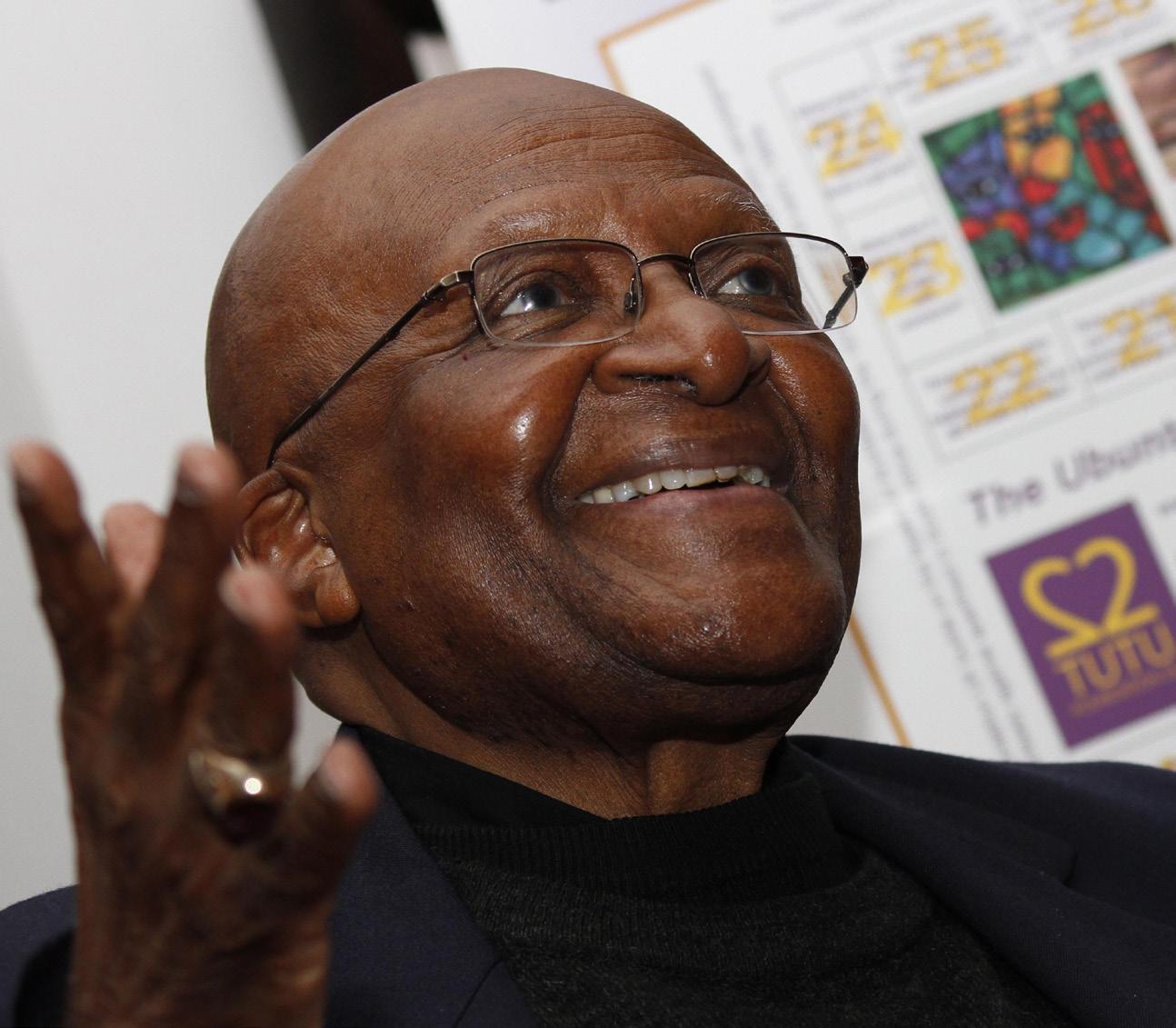





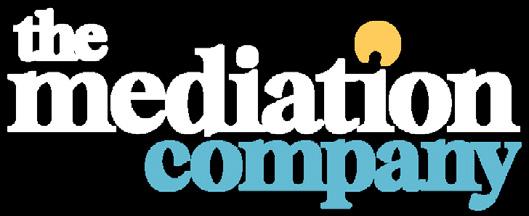




Join our 3-day course online or onsite and develop the key skills and strategies to resolve complex and challenging employment, workplace and labour conflicts through mediation.

Develop & enhance conflict resolution & negotiation skills
Gain hands-on experience through role-playing and simulations
Leverage 20 years of expertise & guidance
Learn in a safe and challenging environment
Become TCM accredited and gain certification
Earn unit one of the National Certification in Workplace Mediation™
Receive access to thorough support and aftercare
The course was meticulously designed. I highly recommend their training for anyone looking to deepen their understanding of mediation or to refine their existing skills. It’s an investment in professional development that truly pays off.
Andreea ButnariuAdministration at East Midlands Councils




